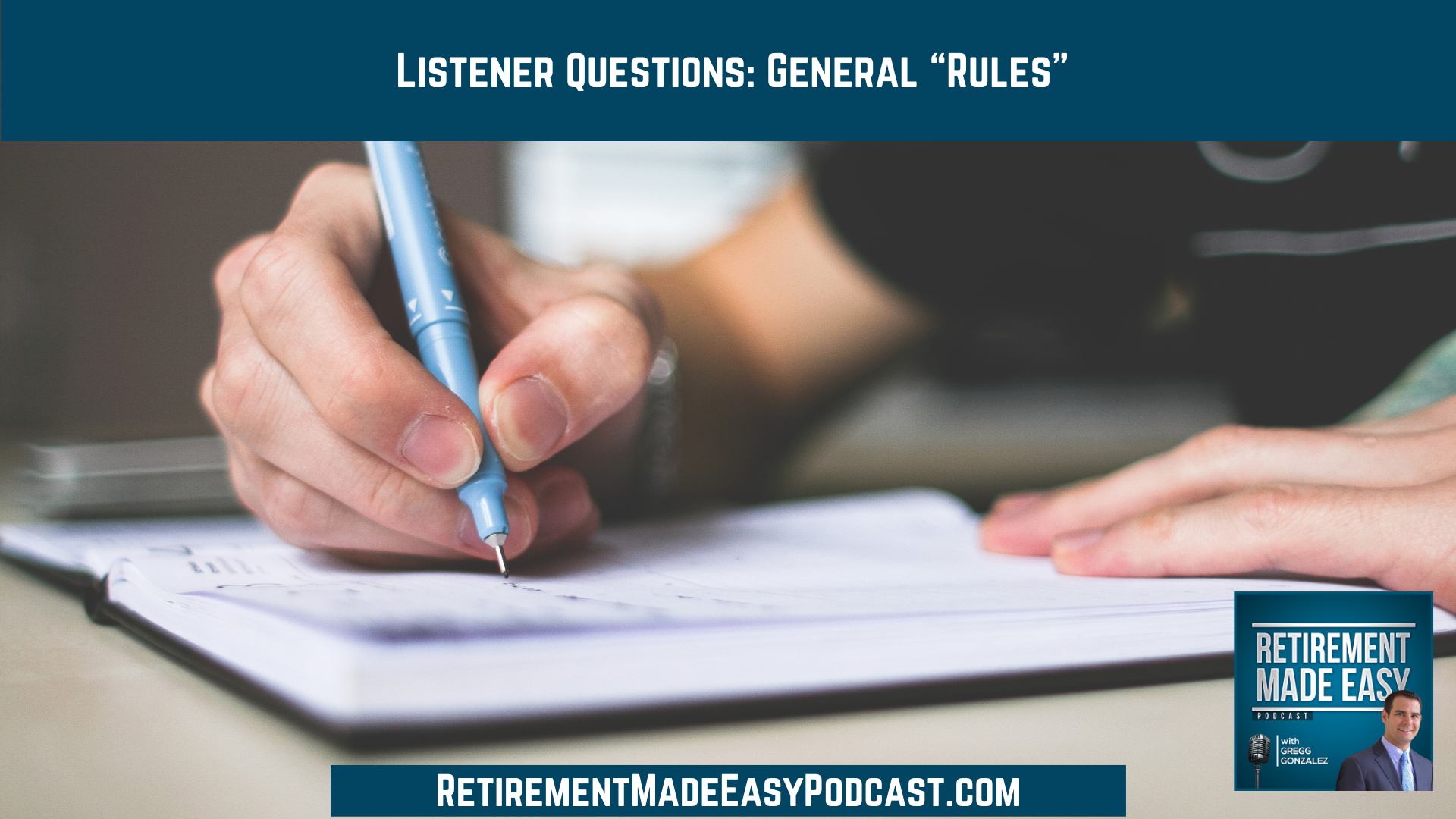
What is the assumed life expectancy for retirement? What accounts can you open for your grandchildren? Should everyone follow the 60/40 rule? The questions have been rolling in! So in this episode of the Retirement Made Easy podcast, I’ll answer some questions and give you a starting place for a conversation with your retirement planner.
You will want to hear this episode if you are interested in…
- [3:09] Question #1: What is the assumed life expectancy for retirement?
- [6:22] Question #2: Why not follow the 60/40 rule for investments?
- [12:01] Question #3: Should you use numerous professionals—or one?
- [15:38] Question #4: What accounts can you open for grandchildren?
Question #1: What is the assumed life expectancy for retirement?
Generally speaking, a 62-year-old non-smoking couple has a joint life expectancy of 92 years. Secondly, statistically, women live longer than men. So you have to account for approximately 30 years of living expenses once you retire.
I have a client whose mother is still mowing the lawn at 94. Another had a parent who lived until 103. For these women, we’re expecting a life expectancy past 92 because of their genetics/good health.
We want to plan to cover at least those 30 years. And if you happen to pass away at a younger age, your money can be left to children, grandchildren, and causes you care about.
Question #2: Why not follow the 60/40 rule for investments?
If you invest in 60% stocks and 40% bonds for retirement, and take a 4% withdrawal per year, will you be just fine? If so, why wouldn’t everyone invest this way?
I don’t think it’s wise for everyone to invest the same for retirement. Everyone has different goals and dreams. You will not be happy with the outcome when you take cookie-cutter advice and do what everyone else is doing. You need a customized approach.
Secondly, one of the biggest risks to consider in retirement is the “sequence of returns” risk. If you take 4% withdrawals from $1 million every year, you’re withdrawing $40,000 a year each time. But what if the market crashes? What if it doesn’t recover immediately? Secondly, you have to factor in the cost of living. It typically goes up every year, which means you may have to withdraw more to meet your expenses.
If you retire at the wrong time and the market doesn’t recover quickly, you have to adjust your plan for withdrawals. We can’t influence whether or not the market is up or down, so you need a plan that accounts for the possibility of the market not performing well in the first few years of retirement.
Question #3: Should you use numerous professionals—or one?
I got a question from someone who has numerous investment accounts with different firms. They were working with a stockbroker, insurance agent, retirement planner, etc. Nothing was coordinated. It was a financial junk drawer; disorganized with no plan. They asked what the gaps were in their retirement plan and if they should leave everything where it was. I advised them to choose one firm and one advisor willing to guide them and put a game plan together. Your retirement is too important to not plan out well. You have to get it right.
Question #4: What accounts can you open for grandchildren?
Without knowing this person’s situation, I can’t give specific advice. However, these are some of the options our clients are using:
- 529 College Savings Plan: Your grandchildren can be the beneficiaries of this account. You can add lump-sum checks or routinely add money. There may be a state income tax deduction but the money will grow tax-free. It can be used for K-12, trade school, college, university, etc. The caveat is that the money has to go toward “qualified educational expenses.” This is one of the best gifts you can give your grandchildren.
- Custodial accounts: You can invest the account however you please. This account is typically taxable. Once the child reaches the “age of majority” in their state, the account is the child’s to do with as they please. Some people don’t want an 18 or 21-year-old to be responsible for that sort of money.
- Roth IRA: If your grandchild has earned income, you can help them contribute toward a Roth IRA.
You can make your grandchildren the beneficiaries of a trust/brokerage account or retirement account as well.
Resources & People Mentioned
Connect With Gregg Gonzalez
- Email at: Gregg@RetireSTL.com
- Podcast: https://RetirementMadeEasyPodcast.com
- Website: https://StLouisFinancialAdvisor.com
- Follow Gregg on LinkedIn
- Follow Gregg on Facebook
- Follow Gregg on YouTube



